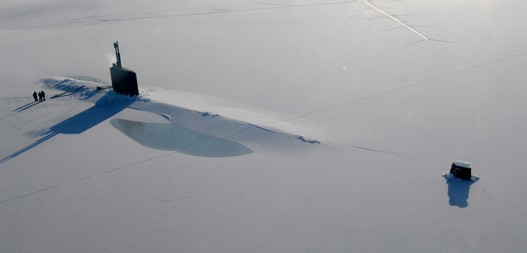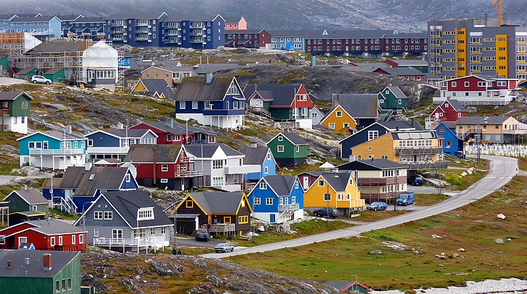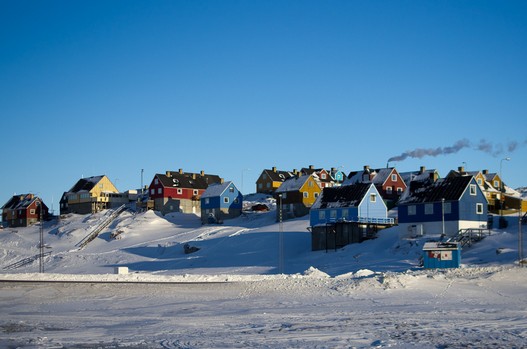Arctic
International Relations > Regions
A vast and largely inhabited frozen wasteland, at a first glance the Arctic may seem the less geopolitically-relevant region in the world. But in reality, global warming is radically changing the area's traditional order.
As the Earth’s temperature rise, the Polar ice cap gradually melts. Apart from the purely environmental effects on the region and beyond (loss of biodiversity, rising sea level, etc.), this phenomenon brings with it two major geopolitical consequences.
First, it opens new maritime passages, most notably Northern Sea Route (NSR); shorter route connecting East Asia with Europe and America's eastern coast. Navigating through the Arctic’s waters remains challenging, but it becoming easier and the NSR has much potential. By now, maritime traffic remains limited, also because the lack of nfrastructures, but it has been expanding in recent years and various powers have shown their interest in developing the NSR.
Second, the Arctic is estimated to host huge hydrocarbon reserves, and global warming is making it easier to access them. This raises significant environmental issues linked with the pollution that extractive activities would cause. But there is also a strategic dimension: exploiting the Arctic’s deposits may provide the Asian states with an alternative energy supply source, thus reducing their dependency on the Middle East, a notoriously unstable area.
Many Asian countries want to develop the NSR and exploit the Arctic's resources, most notably China. It wants to find an alternative to the southern sea lanes and to energy supplies from the Middle East. As a matter of fact, the US could easily block them in case of war, thus putting China's economy and energy security at risk. However, this may be an ephemeral solution, as chokepoints exists for northern routes as well. The Bering Strait will gain importance in this sense. Yet, blocking sea lanes there would not be easy for the US, since Russia (who is aligned with China) control one side of the passage. The GIUK Gap will also become a vulnerable point along the NSR.
Still, the PRC has already conducted several expeditions the area and is determined to establish its presence in the Arctic. For similar reasons, powers like Japan and South Korea are also increasingly involved in the region, but in their case the danger is that the interruption of the sea lanes may be the result of a Chinese action or of a Sino-American conflict. Similar trade and energy concerns form also the basis of the interest that European countries have in the Arctic.
Then, Russia is going to play a major role in the Arctic. Its northern coasts practically surround a vast portion of the region, putting Moscow into a privileged position. Developing the NSR and exploiting the region’s energy deposits may boost Russia’s economy in the long term. In this context Russia has invested in the area and has strengthened its military presence there. On the contrary, America has neglected the region. Apart from gaining access to hydrocarbons deposits, America’s mostly cares about the Arctic because its main competitors (Russia and China) are expanding their influence in the area.
It is therefore clear that the Arctic’s geopolitical configuration is evolving. Until now, international norms and the Arctic Council managed to maintain peaceful and often cooperative relations among regional powers; but the situation may change as trade and energy interests raise security concerns thus making of the Arctic another theatre of great power rivalry.
Geostrategy of the Arctic Chokepoints
 As the Polar ice cap melts, new shipping lanes are opening across the Arctic.
As the Polar ice cap melts, new shipping lanes are opening across the Arctic.Navigation in the area is still in its initial stages, but in the long term it has the potential to transform international maritime trade and to profoundly affect the geopolitical scene.
If this happens, new chokepoints will take a central strategic importance: the Bering Strait and the North Atlantic passages.
The Bering Strait: A New Chokepoint for Great Power Competition

The Bering Strait might just seem a remote and irrelevant waterway. But as the Arctic ice melts, the maritime traffic along the Norther Sea Route (NSR) and drilling activities to extract the energy resources around the Pole will both increase.
As this happens, the Bering Strait will gain greater strategic relevance, notably for Russia. Adding the proximity of the US state of Alaska, this is likely to lead to a militarization of the area. Also, contrarily to what may be expected, the NSR will not solve China's strategic problems about protecting the vital sea lanes; and Bering will not become its main point of concern. The real problem for the PRC is that it will have to rely on Russia to protect its interests in the region; but the Beijing-Moscow partnership may not last forever.
Photo credit: USS Annapolis ICEX.jpg, US Department of Defense photo by Petty Officer 1st Class Tiffini M. Jones, U.S. Navy, licensed under public domain.
The Security Implications of China-Greenland Relations
 This article examines how China's presence in Greenland could be perceived in the future as a threat for the island's identity (societal security) and for the sovereignty and international influence of Denmark (political security).
This article examines how China's presence in Greenland could be perceived in the future as a threat for the island's identity (societal security) and for the sovereignty and international influence of Denmark (political security).It was published by the Polar Research and Policy Initiative and I contributed to it alongside Kenty Dubois, whom I thank for involving me in the project (you can know more about his work on his blog Frost Geopolis).
Full article here.
Greenland: A New Frontier of Great Power Competition
 The elections in Greenland in April 2018 were scarcely mentioned in the media. Yet, their long-term effects could be significant.
The elections in Greenland in April 2018 were scarcely mentioned in the media. Yet, their long-term effects could be significant.The vote resulted in a Parliament formed by parties who favor more foreign (notably Chinese) investment as a way to develop the island's economy and allow it to acquire the financial means to move on to independence. Now, China is expected to be a main source of capital, as it is interested in Greenland's natural resources.
But close ties between Beijing and Nuuk will have geopolitical consequences. In the long term, this may threaten America's national security. Moreover, renewed tensions with Russia are also making the island strategically impotant once again.
Full article here (only for Geopolitical Monitor subscribers).
Photo credit: Illulissat, Ritchie Argue, licensed under Creative Commons Attribution-NonCommercial-NoDerivs 2.0 Generic (CC BY-NC-ND 2.0).
